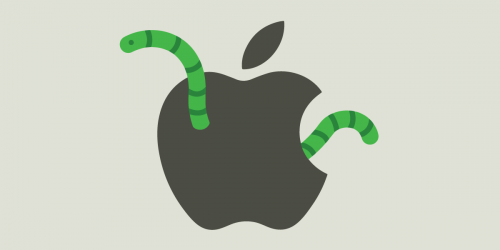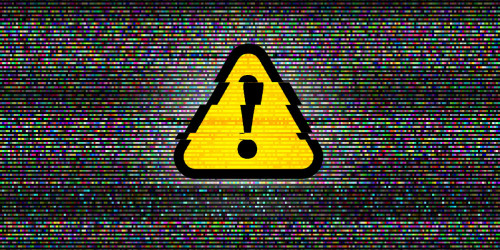UPDATE: Macworld reports that Apple has changed its mind and approved the "Bobble Rep" app, which is now available in the App Store.
Apple's ridiculous iPhone app approval process has hit a new low, with rejections for “ridiculing public figures" and using Apple's own APIs to access Apple icons. These are just the latest reasons why the U.S. Copyright Office should approve EFF's effort to legalize jailbreaking of the iPhone—customers and developers shouldn't need Apple's approval before using the software they want.
In a cautionary tale for both artists and developers, illustrator Tom Richmond blogged about Apple's pointless rejection of "Bobble Rep," a great civic-engagement app designed to help users connect with their senators and representatives. Using a ZIP code or the iPhone's GPS, users can can get contact information for their members of Congress. But there's style as well as substance to the app, as Richmond – a noted caricature artist – drew portraits of all 544 members of Congress, giving the app a neat, cartoony flavor. (For novelty's sake, you can flick the lawmaker's head to make it bobble.)
So why did Apple reject Bobble Rep?
...because it contains content that ridicules public figures and is in violation of Section 3.3.14 from the iPhone Developer Program License Agreement which states: "Applications may be rejected if they contain content or materials of any kind (text, graphics, images, photographs, sounds, etc.) that in Apple's reasonable judgement may be found objectionable, for example, materials that may be considered obscene, pornographic, or defamatory." [Emphasis added.]
First of all, the caricatures are no more scandalous than what you might get for paying a street artist to sketch your face. But even beyond aesthetic quibbles about whether or not John McCain's forehead is drawn as “cartoonishly huge" or “insultingly huge," how is this any of Apple's business? This episode demonstrates once again how Apple is stifling the iPhone platform and alienating would-be partners by deciding to keep the gate, paternalistically levying arbitrary judgments about what users can handle. For whatever reason, Apple allows apps that fart, but disallows apps that help you get in touch with elected officials.
It's this kind of arbitrary censorship that led the noted software developer Rogue Amoeba to leave the iPhone platform today. CEO Paul Kafasis describes the tortuous saga Rogue Amoeba went through to fix a bug in their product "Airfoil Speakers Touch" while being stymied by an unresponsive Apple at every turn. The app is cool -- it allows you to forward audio from one computer to your iPhone. As part of the app's function, it shows a picture of the computer where the audio is coming from -- a helpful visual cue that lets the user know how and if the application is working.
But later, when Rogue Amoeba found a bug, coded a fix, and resubmitted the application to Apple for approval, Apple rejected the new version because the app shows a picture of the computer sending the audio (like a picture of an iMac, or a Macbook Pro) and an icon for the application from the sending computer (like a Safari icon). Apple cited their policies, claiming:
You may not use the Apple Logo or any other Apple-owned graphic symbol, logo, or icon on or in connection with web sites, products, packaging, manuals, promotional/advertising materials, or for any other purpose except pursuant to an express written trademark license from Apple, such as a reseller agreement.
Mind you, Apple had already approved the first version of Airfoil Speakers Touch. And the pictures and icons are supplied by the transmitting computer using Apple's own APIs. Crazy!
And Facebook's iPhone developer, Joe Hewitt, recently dropped the iPhone project, saying, "My decision to stop iPhone development has had everything to do with Apple's policies. [...] I am very concerned that they are setting a horrible precedent for other software platforms, and soon gatekeepers will start infesting the lives of every software developer."
Of course, like any retailer, Apple can choose what it wants to carry in its own App Store. But if Apple doesn't carry an app you want, you shouldn't be locked in to the App Store as your only source for software. “Jailbreaking" allows consumers to use their phones however they like, and for developers to sell whatever they produce. These episodes highlight why it's important that the Copyright Office grant EFF's request for a DMCA exemption for "jailbreaking" iPhones and other handsets. There's no reason that Apple should be the sole source of applications for the iPhone (any more than it's the sole source of apps for Macintosh computers), and a DMCA exemption would go a long way toward letting competition, rather than Apple's “approval," decide which apps users want.









